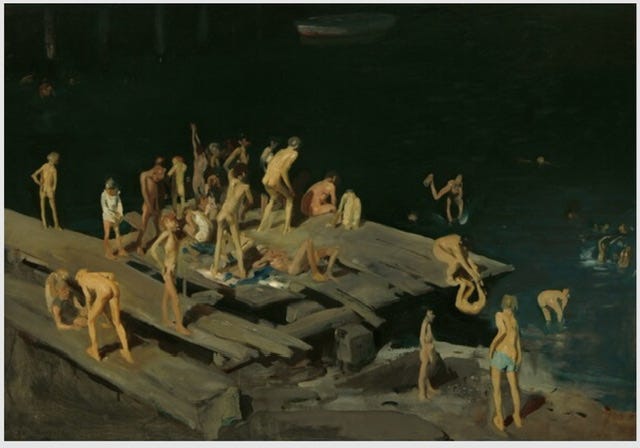What about socialisation?
If we could only choose one skill for our children to learn—at home or school—I think it would have to be socialisation. What use is the world’s finest mathematician if they can’t communicate their discoveries? If you write the defining novel of the 21st century but can’t network with agents and publishers to get it in the shops, nobody will ever know. And great achievements aside, a life without a partner and/or a small but steadfast group of friends is not one we would want for our children.
No parent decides to homeschool without considering the social aspect, and it is one of the first things non-homeschoolers ask about. But consider: Modern Homo sapiens has been around for 160,000 years, and it wasn’t until 1880 that schooling was made compulsory for children between the ages of five and ten in England and Wales. Children were somehow learning those all-important social skills before 1880 came along. We wouldn’t be here today if our ancestors hadn’t managed to get along, most of the time.
Until the last century, “children” of middle-class parents were made at home with the help of preceptors and private schools. Only with the advent of industrial society did the mass production of “childhood” become feasible and come within the reach of the masses. The school system is a modern phenomenon, as is the childhood it produces.
Ivan Illich, Deschooling Society (1971)
In today’s schools, our children will mix with others all within a year of their own age. For large parts of the day they will be specifically told not to talk to each other. And for some unlucky children there will be bullying.
A homeschooled child will, yes, spend lots of time with their family. In my case this means my two children play with each other a lot, and talk to me and my husband a lot. But like other children they have neighbours, friends, and extended family. They attend weekly clubs. They strike up ephemeral friendships with children they meet out and about. They talk to librarians, museum guides, people on the bus. Yes, some days they talk to nobody but me, but on average I’d guess they interact with more, and a wider variety of, people than a child at school. Yes, most other children are in school for 195 days of the year. They’re still around to play with the other 170. And you might be surprised by how many other homeschoolers there are, too.
And I wonder how much all of this really matters. I had a school education myself. I have a small bunch of friends that I would be lost without. I’m an introvert but I can happily talk to anyone. I know adults who are terribly shy and don’t find socialising easy, and they went to school too. I wonder if this socialisation question is a bit of a red herring. I suspect that like walking and talking, socialising might be something that humans have evolved to get the hang of, wherever they spend their childhood. And some of us find it easy and some of us don’t, no matter how we are educated.
We don’t have to think very far back to imagine a time when some children were educated by tutors at home. Or when the village was so small that the village school was just a handful of children, of all different ages. Or when children barely attended any formal school at all because they were out at work, or running wild in a big gang, or wandering around behind their parents as they went about their own tasks. Today there is one type of childhood, and any deviation from this norm is seen as strange and risky. But it wasn’t always like this.
But how will they socialise? they ask, as if only the school child can acquire this skill. But schools were not created to help children socialise. Depending on your experience of school you will have different views about what schools were created for, but it definitely wasn’t to cure an epidemic of unsocialised children.
If you don’t already subscribe, sign up now to get new posts straight to your inbox.
And please share How We Homeschool with your likeminded friends.



The socialization piece is a top reason WHY we homeschool. I'd prefer having them socialize with other children outside of their grade, along with adults. My husband and I were both homeschooled and our part heard it then. We hear it now. This question needs to die.
This question always feels like a euphemism to me, for “what if your children turn out weird and uncool?” Speaking as a homeschooled adult, I think it’s more natural and more useful to learn to socialize with a wide range of people of all ages. School is a very strange environment, when you think about it, and it’s never recreated in adult life. Even in an office, you’ll be interacting with a much more diverse age range.